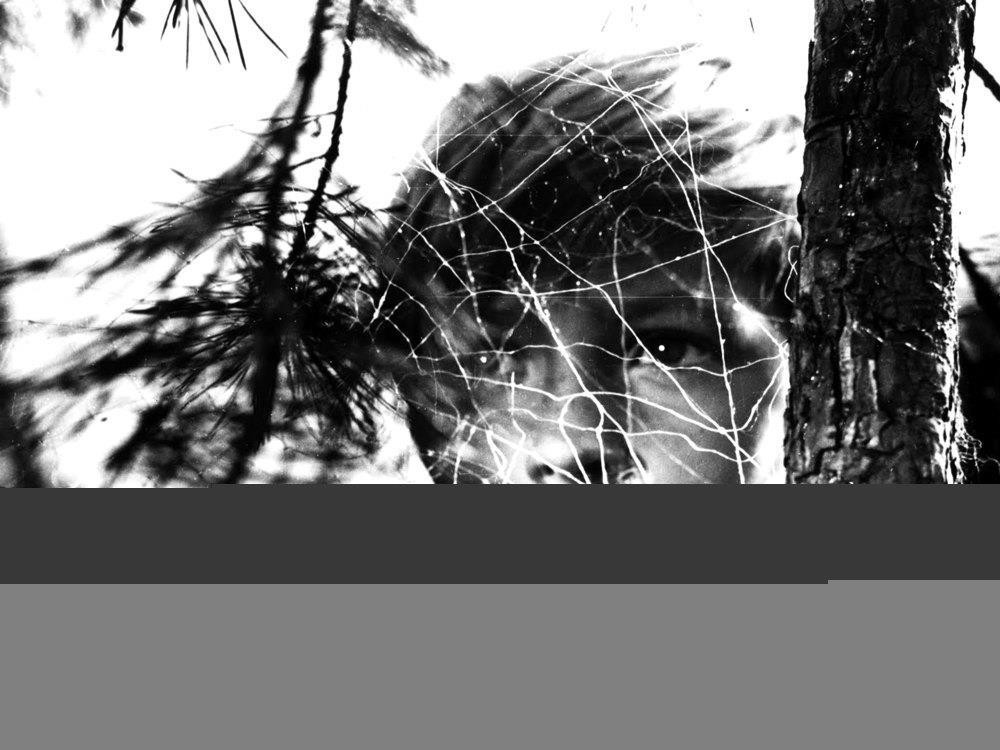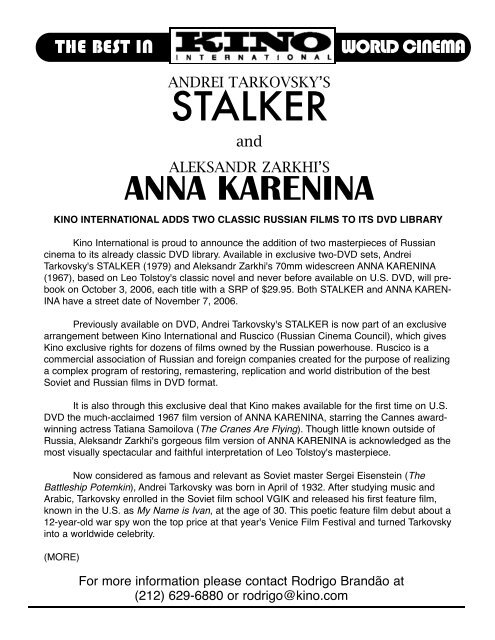
His family had a literary background, and he studied art, music and language at school. Andrei Tarkovsky.Andrei Arsenyevich Tarkovsky (Андре́й Арсе́ньевич Тарко́вский, Ap December 29, 1986) was a Soviet film director, writer, and theorist. Art is born out of an ill-designed world'. Art would be useless if the world were perfect, as man wouldn't look for harmony but would simply live in it. Some sort of pressure must exist the artist exists because the world is not perfect. THE SPIDERS' MAN trailer (2018).
He was sent to Siberia and, in the wilderness there, discovered film.Jury Special Mention Documentary Meeting Andrei Tarkovsky, by Dmitry Trakovsky Best International Short Film Jury Award: Death Valley Superstar.Golden Train Award: Best Film Zerkalo (1975) 1972 Winner Golden Train Award: Best Film Solyaris (1972) Winner FIPRESCI Prize: Main Competition Solyaris (1972) Winner Audience Award: Best Film Solyaris (1972) 1966 Winner Golden Train Award: Best Director Andrey Rublev (1969) Nominee Golden Train Award: Best Film Andrey Rublev (1969) Nominee Audience Award: Best Film Andrey Rublev (1969)The great Swedish director Ingmar Bergman famously intoned in his 1987 autobiography, The Magic Lantern, that discovering Russian filmmaker Andrei Tarkovsky’s work was, A miracle. He dropped out of university and decided to become a prospector. He caught tuberculosis and recovered in a hospital.
The film’s many layers intertwine real life and family relationships Tarkovsky’s father, the poet Arseny Tarkovsky, reads his own poems on the soundtrack and. Reality, the nature of religion, morality and freedom of choice.Mirror is the celebrated Russian director Andrei Tarkovsky’s most autobiographical work in which he reflects upon his own childhood and the destiny of the Russian people. This openness also led him to explore many themes in his films, such as man's role in the world, dreams vs. By this time, Stalin had died and Khrushchev was opening up the Soviet Union, so Tarkovsky was able to see and study the films of such greats as Ingmar Bergman and Akira Kurosawa, influencing him to become an auteur.


Andrei Tarkovsky Awards Series Of Video
Nostalghia (1983), made in Italy, about a Russian writer who goes to Italy to research the life of a Russian composer who killed himself upon returning home. Voyage in Time (1982) was Tarkovsky's first "foreign" film and documented his collaboration with Tonino Guerra in preparation for. This film continues many of the themes explored by Solaris and was one of the inspirations for the STALKER series of video games. Stalker (1979) was loosely based on the Strugatsky Brothers story Roadside Picnic, and in this film, the Stalker guides two people into the Room, which is said to be able to fulfill a person's innermost desire. This film did not have an official premiere but has since become better known and welcomed into the Tarkovsky oeuvre.
He said this was because we do not really examine our surroundings and notice colors enough, and he wanted us to find the meaning in everything. Art Shift: Tarkovsky likes to switch between black-and-white and color, notably in Stalker (the town is in black and white, the Zone in color) and Andrei Rublev (the events are in black and white, the icons in color). Shortly after finishing this film, Tarkovsky died. It was Tarkovsky's homage to his peer and idol Ingmar Bergman. As the world dies in a nuclear holocaust, the writer Alexander promises to God he will sacrifice everything he loves if only God will save the world. The Sacrifice (1986) or Offret was Tarkovsky's final film, made in Sweden.
Creator Thumbprint: Lots of expansive, panning, cinematic shots. Contemplate Our Navels: A frequent criticism of Tarkovsky is that his films contain too much meditation and not enough action, but he preferred it this way, so that we really can think about what we are seeing and hearing. Badass Crew: The bomb squad in There Will Be No Leave Today. Author Avatar: Andrei Rublev in Andrei Rublev, Henri Berton in Solaris, Alexei in The Mirror, the Writer in Stalker, Andrei Gorchakov in Nostalghia, and Alexander in The Sacrifice.
Andrei Tarkovsky Awards Full View Of
Fanservice: Alexei's mother in The Mirror takes a shower in full view of the camera, and in Solaris Hari's nipples poke through her shirt when she resurrects after taking the liquid oxygen. Driven to Suicide: Gibaryan and Hari in Solaris, Porcupine in Stalker. Downer Ending: Ivan's Childhood, The Sacrifice, and, in a more meta sense, Tarkovsky's own life, as he died from cancer just before his works gained a real worldwide audience. Deliberately Monochrome: Even after Tarkovsky made the switch to primarily shooting in color after Andrei Rublev, monochrome sequences, as well as sepia, appear in "Solaris", "The Mirror" and "Stalker".
Leave the Camera Running: Tarkovsky loves holding a shot, sometimes for several minutes. Insufferable Genius: Tarkovsky comes off as one to people who are not already into film, especially since his attitude to the audience was almost confrontational. Genius Loci: Solaris (a planet or rather planetary intelligence) and the Zone (a strange, secluded wilderness). Gainax Ending: Some of his movies seem to end in this way, like for example The Mirror and Nostalghia.

The Oner: A regular feature of his films consist of very long one camera shots. Single Woman Seeks Good Man: Stalker's wife explaining the development of their relationship. Shoo Out the Clowns: Tarkovsky built up his films slowly so that people who wanted action movies and other mindless fare would get out of the theater. Getting Sven Nykvist to do the cinematography for The Sacrifice certainly wasn't a bad thing, what with his gorgeous set design, and use of bleach bypass and careful color timing. Scenery Porn: Nearly all his films, due to expert cinematography and direction, but standouts include the shots of the Zone in Stalker, lovingly rendered in full color, and the vast landscapes of Andrei Rublev.


 0 kommentar(er)
0 kommentar(er)
